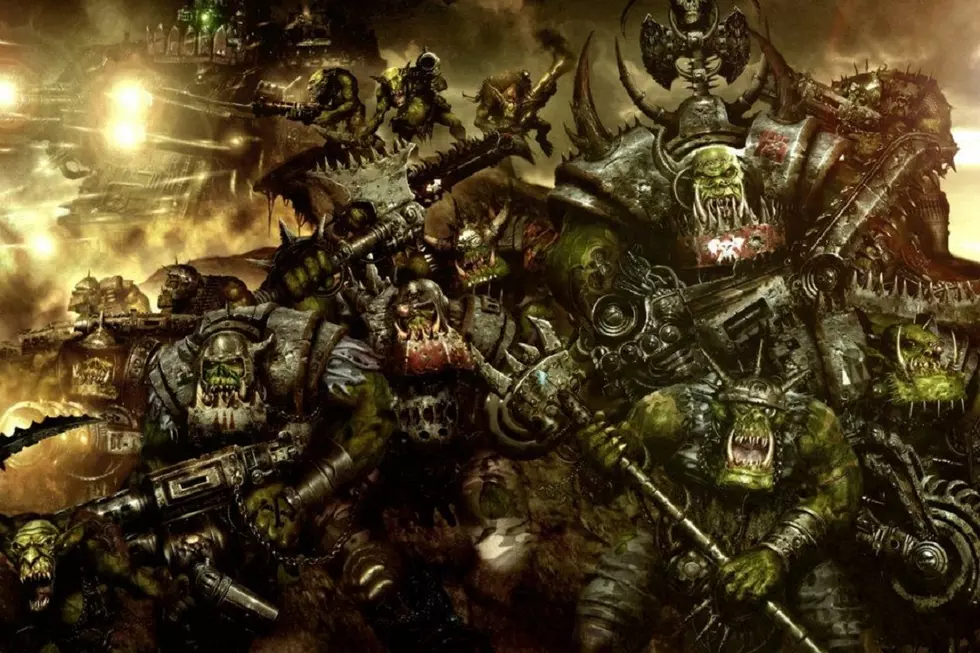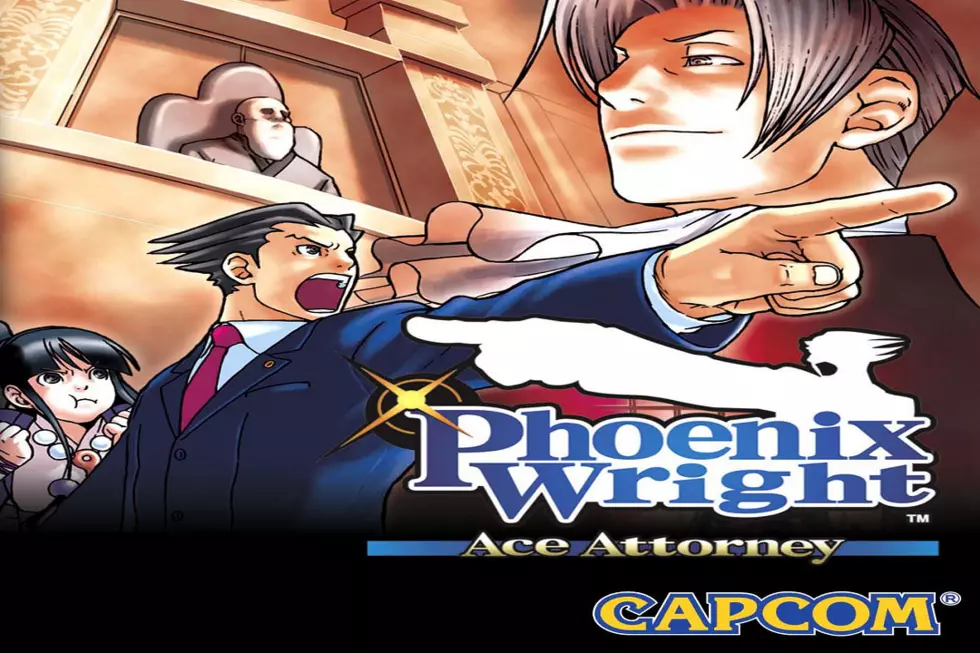
The History of Resident Evil: A Fistful of Jill Sandwiches
Resident Evil 7: Biohazard marks a return to form for Resident Evil. Few video game series have had such lasting appeal as Resident Evil, or been as influential to the medium, while also undergoing such a radical identity crisis. Horror! Action! Survival Horror! Resident Evil (aka Biohazard) has a long and storied history, and since Capcom is getting back to its roots with this newest entry it seems apropos to explore some of the high and low points of the series.
Resident Evil
At first glance, Resident Evil seemed like a mere game about zombies and a spooky mansion. It wasn't the first game to feature either, so what was it about RE that made it take off? Hollywood. Resident Evil combined B-movie kitschy horror with the video game format in a way that hadn't really been done before; it was like playing a grindhouse horror flick from the '70s, complete with cheesy acting, terrible writing, and over-the-top gore. Series director Shinji Mikami was originally tasked with creating a remake of the Famicom cult classic Sweet Home, a proto-survival horror title Capcom released in the late '80s. However, the increased processing power of the PlayStation at their disposal, Mikami and his team dreamed bigger. In addition to Sweet Home, they also drew inspiration from The Shining, basing numerous locations on the infamous Overlook Hotel, Lucio Fulci's taut goretacular Zombie, George Romero's Night of the Living Dead series, and Alone in the Dark's cleverly claustrophobic camera work.
The result was a creation which melded the influence of cinema and the visceral, decisive entertainment of video games. While certain aspects of Resident Evil, such as the fixed camera angles and clunky "tank" controls, may seem archaic by modern standards, these rough edges served as a means of enhancing the horror. Typically, horror stories feature protagonists up against overwhelming odds wherein fighting back is barely an option. Since video games are often about empowering players, Mikami and his team did everything in their power to make players feel empowered, yet overwhelmed, with even these seemingly clunky elements adding to the tension. All in all, Resident Evil was a well-paced scarefest that knew when to keep quiet and when to pop out from behind something and shout OOGA BOOGA!
Resident Evil 2
Though Resident Evil 2 still has plenty of the quiet thrills and chills of the original, the fast-paced opening sequence let gamers know that they were in for an experience which was much more Dawn of the Dead than Night of the Living Dead, though it wasn't always this way. Before RE2 became the game fans know and love it was a very different beast; dubbed "Resident Evil 1.5" post-mortem, this game was a quieter affair, lacking some of the oppressive atmosphere of the released game, and featured an almost entirely different cast of characters. Supervising director Yoshiki Okamoto found the direction for the game "dull, and too conclusive," instead desiring that Capcom could create a larger universe for many future games to take place in. Okamoto desired a more "Hollywood" presentation for the series, and tasked the team with making Resident Evil 2 into a flashier game with a smarter story than what he'd found in RE1.5. This new direction maintained some of the core B-movie charm which endeared fans to the original while upping the "Hollywood" thrill factor beyond that of its predecessor. Resident Evil 2 was an unmitigated success, though this obsession with Hollywood would ultimately prove to do more damage to the series than good.
Resident Evil 3: Nemesis
The conceit of Nemesis was simple: an unstoppable, uncaring monster stalks you throughout the game. You never know where, or when, he'll appear, but when he does you are in for a most un-heinous time. Director Shinji Mikami was inspired by Terminator 2: Judgment Day in the creation of Nemesis, stating that he "wanted to introduce a new kind of fear into the game, a persistent feeling of paranoia. The Nemesis brings that on in spades. When it disappears after the first confrontation, you live in constant dread of the next attack. The idea is to make you feel like you're being stalked." Nemesis featured more open environments than the first two games, largely taking place on the streets of the destroyed Raccoon City, featuring smarter, more aggressive enemies with advanced AI beyond that of the previous games. To even things out, players gained a few new maneuvers at their disposal such as snap-turns for quicker movement and a reactive dodge to enable skilled players to avoid damage. These changes all lead to a beefier game than ever before and another resounding success for Capcom.
Resident Evil: Outbreak
Outbreak, and its sequel, Resident Evil: Outbreak File 2, represent a fascinating experiment for the series. The core gameplay heavily resembles the early games, with slightly less emphasis on action than Nemesis, but the big twist here is that you could play Outbreak online using the PlayStation 2's early, awkward network functioning. It was clumsy as hell, lacking voice chat as a deliberate effort on Capcom's part to keep things feeling more tense and isolated, and the short-but-sweet missions lacked the overall narrative payoff of the previous games. Yet, in spite of these odd flaws there's something charming about Outbreak. Its experimentation didn't pay off completely, but it was innovative while keeping the core tenets of the series intact, and, in that way, it was a success.
Resident Evil 4
There's a reason Capcom keeps re-releasing (and re-re-releasing) Resident Evil 4 --- it's one of the finest games ever made, one that became universal in its enjoyment and which changed the way developers would create games. Resident Evil 4 was fast and furious; gone were the sly scares of the previous entries, here you had to dodge, run, shoot, dip, dive, and dodge, hoping it was enough to slay the hordes of zombie-esque medieval villagers, mutants, and chainsaw-wielding lunatics between you and the president's kidnapped daughter.
Like Resident Evil 1.5, there were a number of Resident Evil 3.5s between the inception and release of RE4. The first version featured an ass-kicking protagonist named Tony Redgrave whose nigh-invincible skills let him slice-and-dice his way through countless foes; this game would eventually become Devil May Cry, with Tony Redgrave becoming the cocky, white-haired Dante. A second version of Resident Evil 4 gave protagonist Leon Kennedy a virus-infected hand which he could use to perform superhuman stunts; a third pitted Leon against ghostly foes, with a level of action somewhere between RE3 and the released version of RE4.
Though it took the team years to perfect, once Resident Evil 4 hit the scene it exploded. Whether you're fleeing a horde of mutant maniacs or creeping through a medieval castle, RE4 is an utterly engrossing, masterful horror experience, and a game which many gaming historians refer to as being one of the best games of all time.
Resident Evil 5
It seems every Resident Evil team was tasked with making their new title bigger than its predecessor. While the early RE games had teams of twenty to forty people working on them, RE5's crew swelled in excess of 110, with Capcom marketing breathing down their neck like never before to create a game which lent itself to profiting through the relatively-new avenue of DLC. The RE5 team used a motion capture system with Hollywood stunt actors such as Reuben Langdon (best known to gamers as the voice/motion actor for Dante in DMC3&4, or Ken in Street Fighter IV & onward) and a score composed by the Hollywood Symphony Orchestra. It was a big production; many argued too big.
On a gameplay level, Resident Evil 5 tried to take what worked about RE4 and streamline it for the Xbox Live era, and the result... was uneven. It lacks much of the innovation and charm of RE4 while bearing a few unique weaknesses of its own such as an awkward inventory system, aggressive DLC, racially-insensitive storytelling, and idiotic AI partner. Resident Evil 5 was successful enough, yet the fans, by and large, just weren't that pleased with it.
Resident Evil 6
With Resident Evil 6, Capcom found itself at an impasse. The series had become so big, and each title had swelled in size compared to what came before, that there were too many factors to try to balance around. Zombies or no zombies? Fast action or slow scares? Hollywood bombast or b-movie cheese? Producer Hiroyuki Kobayashi decided to expand the story to feature numerous playable protagonists, each with their own storylines and gameplay styles, hoping to satisfy the fractured fanbase by birthing a beast larger than ever before.
Unfortunately, in trying to please old fans, new fans, and potential fans, Capcom ended up splintering the fanbase even further. Though there are moments which come close to the atmospheric scares and tense joys of the early Resident Evils, RE6 is, by and large, a sloppy, cover-based shooter, and critics and fans alike weren't impressed with the finished product. Game Informer described it as an "unhinged flaming rollercoaster ride," and its user Metacritic score sits at 54— a record low for numbered entries in the series.
Resident Evil: Revelations
Thanks to a few less-than-well-received games in a row, this Resident Evil game came out with less fanfare than its predecessors, with many former fans turned wary by the over-emphasis on Hollywood action in the previous titles. But those who did play it found something surprisingly good. Revelations de-emphasized the blazin' shootin' of the later RE games, leaning more towards the slow-paced explorative gameplay of the earliest titles (with a few modern amenities like better controls and camera work). It's spooky and atmospheric, with mind-bending mutant people and animals, a plot which makes next to no sense, and more cheesy dialogue than you can shake a signed DVD copy of The Room at, and the result is a game which feels absolutely, ineffably, Resident Evil.
More From Arcade Sushi

![It’s a Monster Hunter World, We’re Just Living In It [Preview]](http://townsquare.media/site/550/files/2017/06/monster-hunter-world.jpg?w=980&q=75)
![Marvel vs Capcom Infinite Just Got a Whole Lot Easier to Enjoy [Preview]](http://townsquare.media/site/550/files/2017/06/mvcinfinite.jpg?w=980&q=75)

![The Nintendo Switch’s Initial Library Preaches Quality over Quantity [Preview]](http://townsquare.media/site/550/files/2017/01/switch-preview-4.jpg?w=980&q=75)




